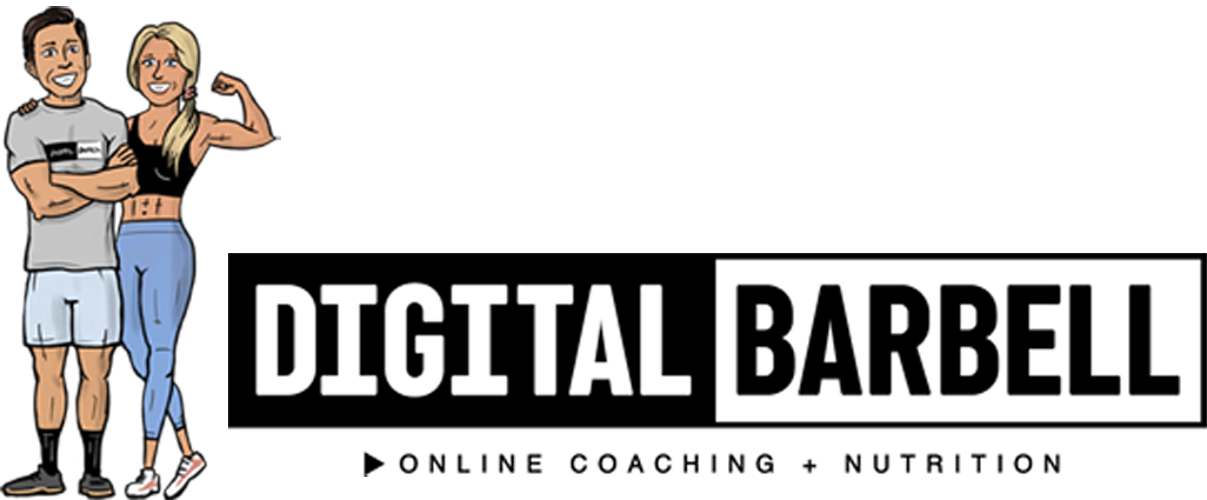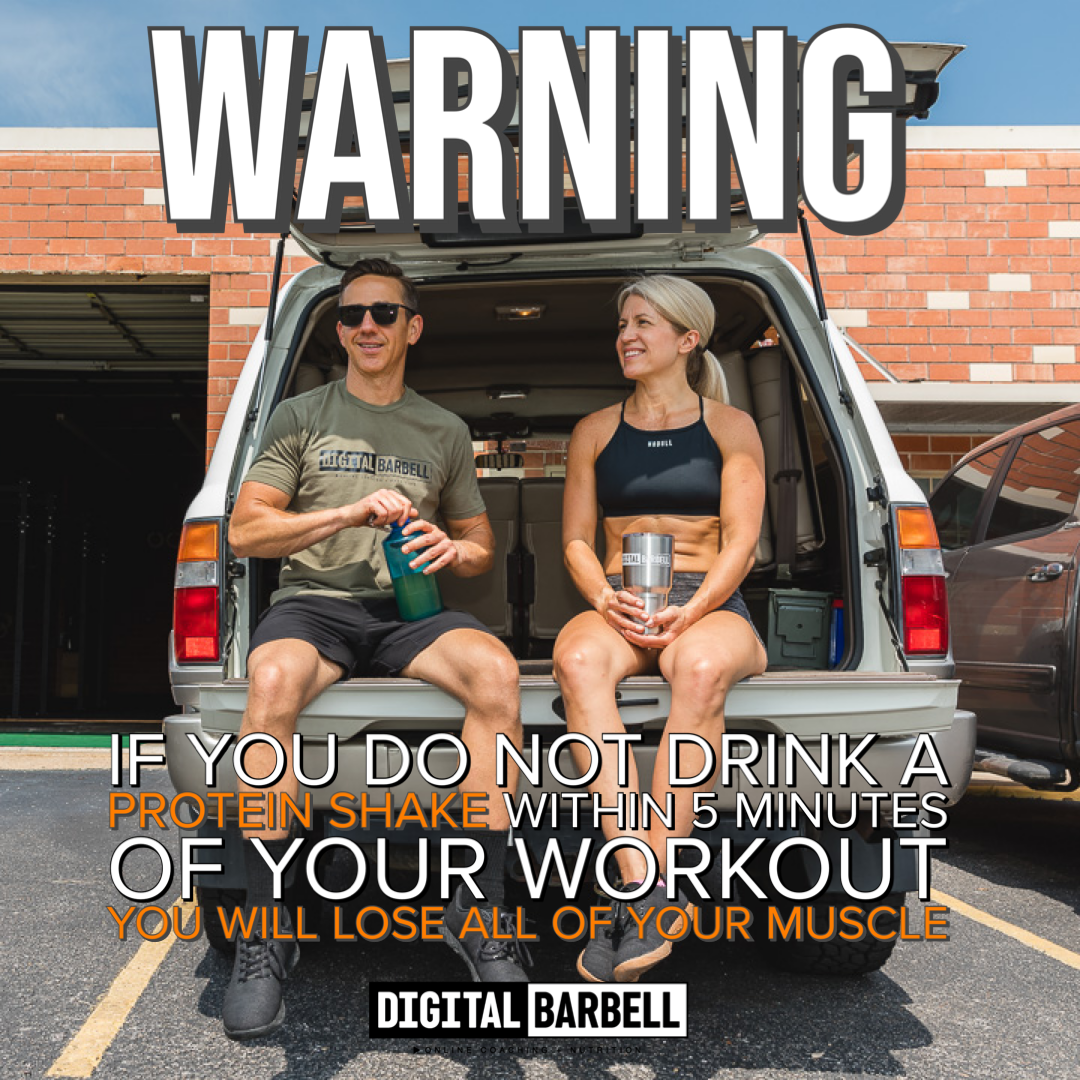What's The Best Thing To Eat Pre and Post Workout (Carbs, Fat, and Protein)
IF YOU DO NOT DRINK A PROTEIN SHAKE WITHIN 5 MINUTES OF YOUR WORKOUT YOU WILL LOSE ALL OF YOUR MUSCLE
There was a time that I believed this.
We’ve been doing this for a long time and there have been plenty of “bro-science” claims like this made during that time. Luckily, research and science have come a long way also and we can speak with much more certainty about both pre and post workout nutrition thanks to that research and our understanding of the human body.
To understand pre and post workout nutrition we need to talk about both the body and the food we put into it.
Before we get into the specifics, let’s keep in mind we aren’t olympians here and ALL of this nutrient timing information is just the tip of iceberg. 1% stuff. The 99% stuff is just showing up consistently, putting in the work, resting appropriately, eating mostly whole foods in the right quantities.
Ok, let’s go.
We exercise and lift weights for a few different reasons.
The main reason is to build and maintain lean body mass (muscle). When we work out, we’re breaking down tissue, and when we recover (sleep and eat) we are repairing/building tissue.
The breakdown phase is the “catabolic” part, and the rebuilding part is the “anabolic part”.
To build muscle and make progress in the gym we need to consider the balance between these two things. We need to be spending more time in an anabolic state than in a catabolic state.
You can’t starve yourself, workout 7 days a week with intensity, and expect not to wither away or get injured.
This is why nutrition is SO important to what we are doing here.
It’s the key.
It’s the part that often gets ignored because it takes some effort, education, and discipline.
Ok, back to that balance. We know that we need to be in an anabolic state.
What gets us there? Muscle protein synthesis. We need to be stimulating muscle protein synthesis with our food choices.
We’ve talked in the past about amino acids, and specifically the branch chain amino acids: leucine, isoleucine, and valine.
These are the amino acids that are in animal protein sources that signal your body to begin the repair and rebuilding process.
So we know we need to eat protein. When should we eat it, and how much should we eat if we are trying to optimize muscle growth and performance?
If you train intensely and with weights in the morning and haven’t eaten since dinner the night before, it would be a good idea to get a healthy dose of protein within a couple of hours of working out.
How much depends on what your protein source is. Shoot for around 30g of protein from a whey (or veggie based) shake or, better yet, have a meal with eggs or meat.
This will be enough protein to prevent excessive muscle breakdown and to speed up the recovery (anabolic) process.
If you train at another time during the day and have had a meal consisting of protein, no need to eat more pre-workout. Muscle protein synthesis levels stay elevated for several hours after eating.
I know what you’re thinking.
Should I eat carbs before working out?
Absolutely.
Carbohydrates are converted to glucose in the body, and muscles run on glucose.
Research shows that elevated blood glucose levels during a workout not only can result in improved performance but also preserve the stored glucose (glycogen) in your muscles and liver.
You’re basically burning the top part of your gas tank for energy without having to dip into your reserves as much.
So if pre-workout carbs fuel more productive workouts, you’re going to be able to make faster progress both in the gym and in muscle growth.
The next logical question is…
How many grams of carbohydrates should I eat before I work out?
The cop-out answer is “it depends”.
It depends on what type of exercise you do.
Hard weight lifting? Hill sprints? CrossFit? Jogging?
If you remember back to our article on energy systems you’ll remember that our bodies use different amounts of carbohydrates based on which energy system we are training.
But… You know we always aim to leave you with concrete takeaway from these articles so…
A 2006 study done at Victoria University in Melbourne, Australia found that between 30-40g of carbohydrates eaten about 30 minutes before a workout is sufficient. The key is to find a carbohydrates source that you tolerate well before exercise.
Pro-tip: a piece of cheesecake is probably NOT the answer. Blakley and I prefer lighter carb sources like fruit, rice cakes or even a carb supplement like highly branched cyclic dextrin. Don’t overcomplicate it.
Lastly on the Pre-Workout front, let’s talk about fat.
Dietary fat should be kept on the lighter side before a workout.
Fat digests much slower than protein and carbs, and when it’s paired with other foods, it will slow down the entire meal’s absorption.
So don’t chase your protein shake with a couple tablespoons of peanut butter.
Alrighty, you’ve eaten your pre-workout food, you’ve hit the gym and gotten the work done, now what?
Let’s talk about what and when to eat AFTER you work out for best results.
What should you eat after you work out?
After we exercise, we’re in a catabolic state and we should aim to get OUT of that and into an anabolic state in a reasonable amount of time.
What the heck does that mean? Since our goal is to get the process of muscle protein synthesis started, we need to eat some protein.
Do we need to drop our last set of curls and immediately drink our protein shake bro?
No. “But what about the anabolic window bro”? Even so. Especially if you took our advice and had a pre-workout meal within a few hours of working out.
Research shows that protein synthesis rates remain elevated for about 3 hours after eating a high-protein meal.
So the real takeaway here is don’t hit a hard workout, skip your next meal, and go several hours without getting 30-40g of protein in.
You’ll be staying in a counterproductive state of breaking muscle down when you could be rebuilding.
How about carbohydrates post workout?
We’re big fans of getting a carb source post workout, but as with most things, you don’t need to overdo it.
Why even eat carbs after a hard workout?
Intense exercise not only burns off blood glucose, but also stored glycogen.
Eating carbs post workout starts the restoration of those depleted supplies. This is less important for lower intensity exercise, but intense exercise like short sprints, heavy weight lifting, and CrossFit can put a dent in your glycogen stores.
Bro-science often touts the benefits of spiking insulin after a workout to stimulate extra muscle growth, but unfortunately, research done at McMaster University in Ontario did not support the bro’s on this one.
I will point out, though, that high-carb diets go hand in hand with building muscle vs. low-carb diets. The reason being that higher carb diets are positively correlated to both productive workouts and overall elevated insulin levels, which promote muscle growth.
If you want to know how many calories, protein, carbs, and fat we recommend for you, click the button below.
Wow, we covered a lot of ground here. Let’s recap the highlights so you can walk away with a clear understanding without getting stuck in the weeds.
The big picture is to focus on your overall nutrition.
Eat protein.
Eat it at every meal and get mostly animal sources that are rich in amino acids.
Eat in amounts that support your activity level and goals but not so much that you store excess body fat.
THEN, we can get more specific.
Have a good protein source before you work out to elevate protein synthesis levels.
Eat some easily digestible carbs before you work out to improve your performance.
Keep the pre-workout meal low on fat.
Don’t skip your next meal after you work out. Get out of that catabolic state by eating protein and throw in some carbs to replenish yourself if it was an intense workout.
It doesn’t have to be immediately, but if you haven’t eaten in several hours, make it a priority.
Last but not least, find ways to make this easy on yourself so that it can become a lifestyle.
The best plan is the one that you can stick with long term.
If you need that plan, that’s what we do.
Apply for coaching below:

